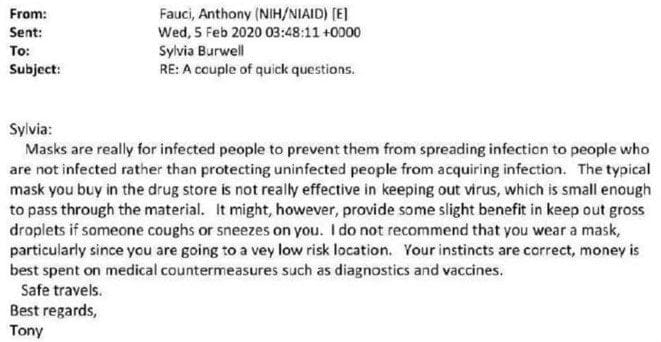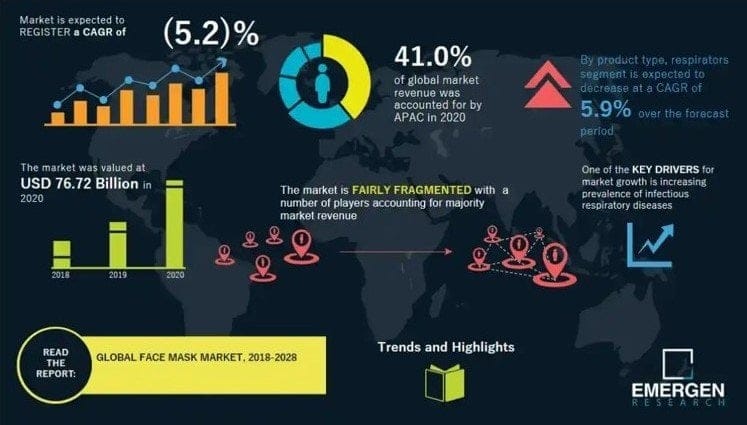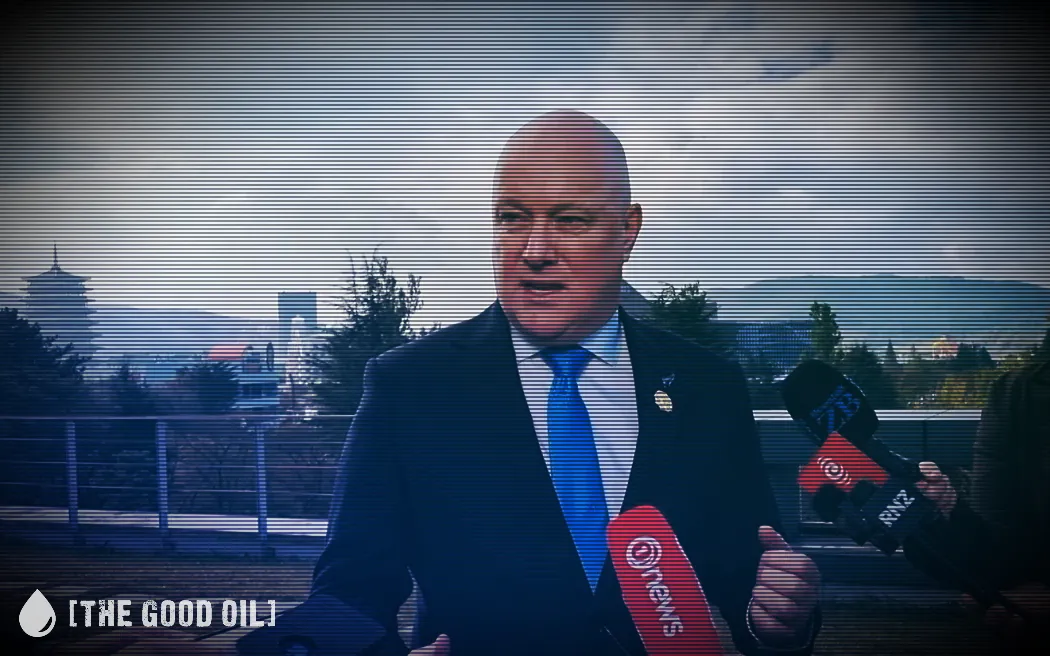Table of Contents
New Zealand Doctors Speaking out with Science
Despite popular assumption, subject matter experts in personal protective equipment (PPE) including face masks, are not the health professionals who wear them. Rather, this expertise belongs within a speciality of public health and/or environmental science known as industrial hygiene.
Health professionals rely on the expertise of trained industrial hygienists and other subject matter experts (SMEs) for advice on appropriate environmental and personal protections according to the clinical situation. For infectious diseases the protections include a range of applications, from building design to maximise ventilation, to how and when to use personal protective equipment (PPE), which PPE to use, and how to safely dispose of it. There are infinite examples of different clinical situations, such as residential care settings; negative pressure isolation rooms accommodating infectious individuals in modern hospital wards; and open air hospital wards in tropical locations.
Quality assurance interventions are recommended for any workplace prescribing specialised health and safety protections such as the use of face masks or other PPE. Fit testing, regular training and monitoring are ideally delivered by relevant subject matter experts, and staff are usually required to attend annual updates.
Why So Much Mixed Messaging on Face Masks During Covid-19?
The mixed messaging on face masks from Anthony Fauci, a medical doctor and immunologist with no subject matter expertise in PPE, was closely mimicked by politicians including here in New Zealand throughout the pandemic. The chaotic and theatrical nature of this advice has highlighted the absurdities directing the pandemic response. In February 2020, courtesy of the “Fauci Emails“, we know he was providing advice based on established knowledge about the use of face masks.

It is a curiosity as to why this advice changed when the evidence did not. However, it is in keeping with the transition from health care based on population needs, to health care based on industry sales and profits, likely run by the US Department of Defense, some details of which we outlined here.
Described comprehensively in Robert F Kennedy’s 2021 bestseller The Real Anthony Fauci, medical research funding today is almost exclusively monopolised by three multi-billion-dollar powerhouses: National Institutes of Health (mainly via Fauci); Bill & Melinda Gates Foundation; and Wellcome Trust (directed for the past ten years by Jeremy Farrar). Hundreds of thousands of medical research positions and grants rely on this money, which is firmly entrenched in pharmaceutical and other medical product revenue, leading to a tightly controlled environment in which only research benefiting corporate interests is funded, and only those results supporting profitable interventions are approved and published.
This was articulated well by critical care specialist Dr Pierre Kory at the Pandemic Strategies, Lessons and Consequences Conference in Sweden 21-22 January 2023, in his presentation The Covid Propaganda and Censorship of Effective Generic Drugs and the Physicians Who Prescribe Them. He describes some of the ways that research design methodology can distort findings; and the collusions with medical journals who censor unfavourable results.
Fahrie Hussein is a molecular biologist with a specialty in chemical pathology, molecular genetics, enzymology and biochemistry. He spent 20 years as a research scientist, including 14 years in a PCR laboratory, and realised when WHO’s Tedros Ghebreyesus instructed all nations to “test, test, test” (without any guidance for criteria of who or when to test), that something was wrong. This led him on an investigative journey through the various actors in the global public-private partnership guiding the pandemic response. He illustrated the deep conflicts of interest in his World Council for Health General Assembly presentation on 18 July 2022, Covid-19 Conflicts of Interest: Follow the Money.
Despite this highly corrupted research environment, the Cochrane Library appears to be independent of commercial or conflicted funding. This is a significant reason that they are considered to be “the gold standard for meta-analytic reviews, deemed robust against bias, and highly trusted by clinicians“. They are however, not without controversy such as the loss of seven governing board / steering committee members after conflict relating to claims of a biased systematic review of the human papillomavirus vaccine.
On 30 January 2023, Cochrane published a systematic review of 78 randomised controlled trials analysing the effectiveness of face masks and hand hygiene in interrupting or reducing the spread of acute respiratory viruses: Physical interventions to interrupt or reduce the spread of respiratory viruses. The authors concluded that wearing medical/surgical masks in the community probably makes little to no difference; and that the use of P2/N95 respirators compared to medical/surgical masks have a very uncertain effect with regards to respiratory illness. Firm conclusions were difficult to make due to “high risk of bias in the trials, variation in outcome measurement, and relatively low adherence with the interventions“.
In rapid response to these findings, an article was published on 7 February 2023 in The Conversation, an academic and media collaboration: Yes, masks reduce the risk of spreading COVID, despite a review saying they don’t. The authors are two Australian epidemiologists based at University of New South Wales (Raina MacIntyre and Abrar Ahmad Chughtai), an epidemiologist in Toronto, Canada (David Fisman) and a GP/primary health care sciences professor in Oxford, UK (Trish Greenhalgh).
Their article cites an August 2020 review written by MacIntyre and Chughtai as evidence that masks do reduce transmission of infection. This review analysed findings from 19 randomised controlled trials. Bizarrely, they then object in elaborate detail, to the Cochrane review analysing randomised controlled trials instead of other study designs.
Equally bizarre in their appraisal is the claim that the Cochrane review was misleading because “it didn’t consider how Covid spreads and how masks work“, when the review was specifically looking at outcomes of respiratory virus transmission in relation to mask use. They also solve the problem of low adherence to mask use by again quoting their own work to confirm that mandates improve compliance.
One of the authors of The Conversation article is Raina MacIntyre, Professor of Global Biosecurity at the Kirby Institute, University of New South Wales. Her declared conflicts of interest in the current article include that she “receives funding from mask manufacturer Detmold for testing of their masks and is on an advisory board for mask manufacturer Ascend …”.
Professor MacIntyre has authored many studies on the effectiveness of face masks. She worked with the controversial and discredited mathematical modeller Professor Neil Ferguson of Imperial College, on a 2009 paper recommending face masks to reduce influenza transmission. At this time she disclosed industry grants from mask manufacturer 3M. In 2015 she co-authored a paper concluding that cloth masks, as opposed to medical product masks, may result in increased risk of infection. She disclosed industry grants and support from companies including 3M, Pfizer, GSK and Bio-CSL. This again highlights the need to look at potential conflicts of interest of researchers promoting authoritative conclusions on their own work, which we have written about previously.
As subject matter experts persistently argue, mask science is known. But so is mask sales revenue. Is further research really needed, or does it merely serve to keep the debate alive and increase corporate revenue?

Government-dictated mask mandates profiting the companies involved in their production and distribution seems a perfect example of the public-private partnerships forming for the benefit of the powerful, at the expense of everyone else. This system of control has a name, defined succinctly by lawyer and geopolitical commentator Maajid Nawaz.
Fascism is the merger of state and corporate power. But rather than the state seizing the means of production, it begins a partnership with corporates for the purposes of profit … The assumption that these companies exist for your benefit is one that really must be interrogated. They exist for profit and you are the thing that needs to be exploited for the purposes of profit … People are cogs in the wheel. The individual no longer matters. It’s incredibly dangerous …
Watch: Subject Matter Expert Presentation on Face Masks
Industrial hygienists have been speaking out with fervour during the pandemic in attempts to educate the public. Three who have been significant in this fight include Kristen Meghan, Megan Mansell and Stephen Petty.
An excellent 16 minute presentation on face masks by Stephen Petty is available via New Zealand videographer Coronavirus Plushie, and a copy of his presentation is below.
!function(r,u,m,b,l,e){r._Rumble=b,r[b]||(r[b]=function(){(r[b]._=r[b]._||[]).push(arguments);if(r[b]._.length==1){l=u.createElement(m),e=u.getElementsByTagName(m)[0],l.async=1,l.src="https://rumble.com/embedJS/udh4zl"+(arguments[1].video?'.'+arguments[1].video:'')+"/?url="+encodeURIComponent(location.href)+"&args="+encodeURIComponent(JSON.stringify([].slice.apply(arguments))),e.parentNode.insertBefore(l,e)}})}(window, document, "script", "Rumble");Rumble("play", {"video":"v1ckalw","div":"rumble_v1ckalw"});Face-Masks-Presentation-Stephen-Petty-January-2022Download









